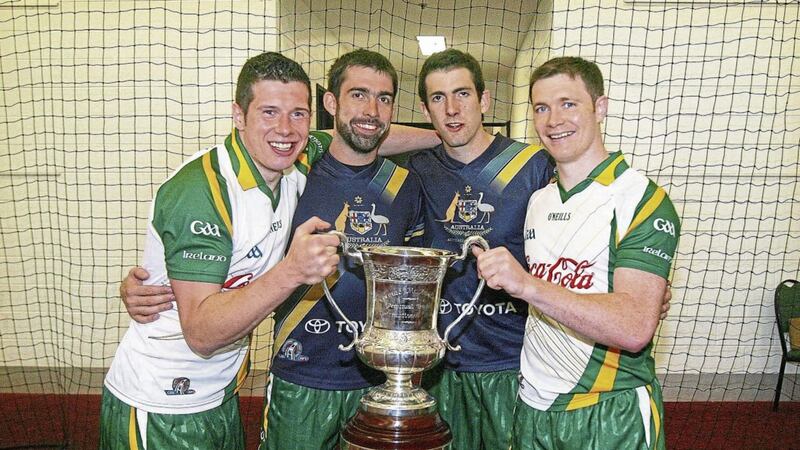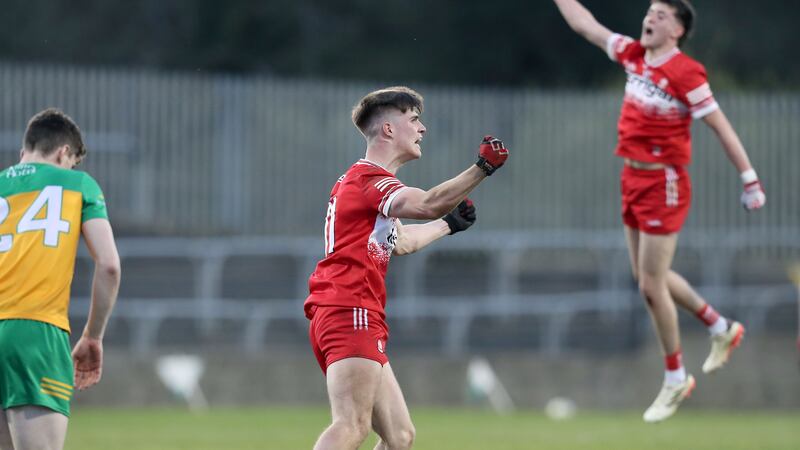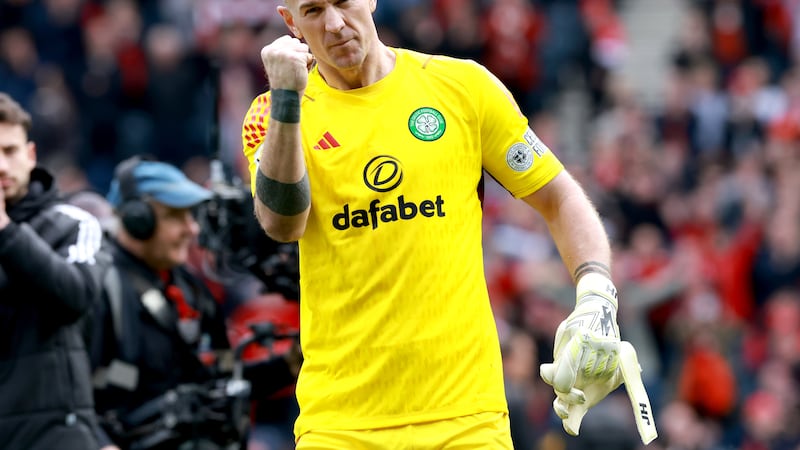EARLY on Sunday morning I will depart for Down Under with the Irish International Rules squad.
Before you think they must be even more severely stretched than first feared, I am travelling in a professional capacity as squad physio. The playing boots remain safely hung up.
The International Rules series (IRS), as always, is garnering quite a bit of interest and debate and, like many things in the GAA, is a divisive topic.
There are those who think it is an abomination of a game and concept. They view it, at the lesser end, as under-selling our own game and, at worst, advertising the talent within our game to the Australian Rules teams, who will then come waving wads of Aussie dollars and a life in the sun as a professional sports player at our very best young talent.
On the other hand, there are those who feel it is our best opportunity to have an international element to our game and, with that, a rare opportunity for our best players to play together and represent their country.
It has allowed experimentation with regards rules and, given the similarities between the two codes as high level single country sports, has allowed cross-pollination of ideas.
The series itself, like the debate around it, has been something of a rollercoaster as well, in its structure, never mind the actual games themselves.
In a relatively short life, the IRS has had three-, two- and one-game formats, while this year sees it returning to the two-game model. It has been haphazard in terms of its scheduling also at times. There was also a series cancelled by the AFL due to financial concerns. I don’t think it is a coincidence that when the series had its best run of consistent fixtures (1998 to 2006) with the best available teams being selected it also hit its peak popularity, with capacity crowds attending in Salthill and Croke Park.
While some suggest a biennial format may be best option, the problem is that it leaves too big a break for players or supporters to remember personal battles.
The period between ’98 and ’06 allowed the teams to keep mostly similar panels from one year to the next with just gradual changes. This allowed a true competitive nature to enter the games. Obviously the Peter Canavan/ Jason Akermanis battle stands out. It mightn’t be politically correct to say it, but that edge and competitiveness is what appeals most.
In contrast, given the recent gaps, this year’s Irish touring squad has only five members from the last Test side and it’s likely to be similar for the Australians.
Consequently, for the most part, the teams have no knowledge of each other at all to raise the stakes in a personal manner which is what really brings out the true competitive side of things. Even though within the camps the preparation and Tests are taken very seriously, the games can lack that rivalry you get when the sides come up against each other on a regular basis. That, along with the fact that the physical over-exuberance which was the trademark of the series previously has now been compromised through new rules, which means suspensions carry over into your native game. Without this competitive or physical edge, the games risk taking on the appearance of glorified exhibitions and thus struggle to really engage the spectators.
At present it feels like the series is limping along rather than being fully believed in by the respective associations.
Various suggestions like reverting back to the two-game series, as is occurring this year, adding in a further international element by playing games in America, or getting a third team competing, have been mooted. Yet, such moves bring uncomfortable reminders of the Railway Cup’s slow death.
So, is the International Rules worth saving?
At its best, when the best teams are present and the event occurs consistently with the right competitive edge, it can be a brilliant spectacle.
I was lucky enough to be a player on the tour to Australia in 2008. The games were very decent, although they lacked the physicality as this was the first series after the disciplinary rule changes which came in following the particularly rough 2006 series.
As a player, my attitude towards it was simple. It was a very significant opportunity and an honour which is bestowed on the few.
As many players will say regarding Railway Cup football, the greatest part of it was training and playing alongside top players from other counties who ordinarily you would never have had the opportunity to say two words to.
Yes, one can argue this can also occur on the Allstar trip, but the competitive environment and much longer time spent together makes it superior in this regard.
I don’t remember much from the actual games. I certainly remember the pride I felt in making the starting 15 and walking out behind captain Graham Canty to practically a full house at the Subiaco Oval in Perth. It was a ‘pinch yourself’ moment.
Bottom line is that, in life, those kind of moments don’t come around too often.
The fact that we contested and won the Cormac McAnallen Cup obviously had special resonance, as did the fact I managed to score a goal in the MCG in Melbourne, thus adding to my club’s own little record as the previous two representatives from Errigal Ciaran – Peter Canavan and Eoin Gormley – had also scored goals.
For the lads boarding the plane, this is a very special trip and a unique opportunity.
Even if outside the camps the general public haven’t made up their minds fully, within the camp and, when the teams line up against each other, it will get very real, very quickly.
This series has a lot resting on its shoulders. The big challenge is for the games themselves to capture the interest of the public.
The last series in Ireland had a great game and I’d imagine all attending and watching fully enjoyed it, but with no follow-up it was as if the party was over just as it started.
This time, the First Test is key. A strong competitive game will potentially set up the Second Test to be a real competitive battle in Perth.
I remember clearly the rendition of Amhrán na bhFiann by the Irish supporters who packed into the Subiaco in 2008. Irish supporters are special across many levels, but for GAA fans who are in Australia, the opportunity to come out and support their team playing a version of the national game was obviously a very proud event.
As the tour starts, many will be observers rather than supporters, but if the games recapture some of their former glories then that will change very quickly.








